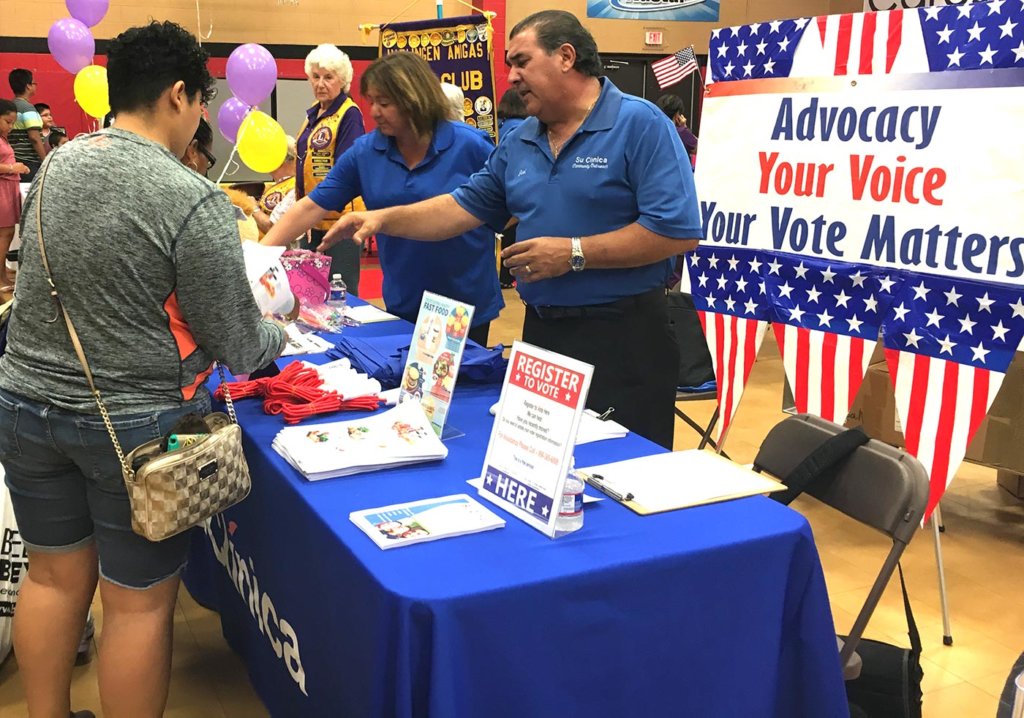Racial segregation of Latino students continues with English-only laws
For decades, states have used English-language skills as an excuse to segregate Latino students. In the past few years, California and Massachusetts have repealed their English-only education laws. But Arizona, where Latinos make up 45% of the student population, still upholds a law that forbids English learners (ELs) from receiving instruction in their native language and requires the separation of Spanish-speaking students from their peers. UnidosUS has been leading the effort to repeal Arizona’s harmful language policies.
By Julissa Arce, Activist, Writer, and Producer
Following the passage of Proposition 203 in 2000, Arizona repealed its bilingual education laws and required that all classes be taught in English. Studies demonstrate that Arizona’s policies not only impair EL students’ ability to learn English by limiting their interaction with their native English-speaking peers, but also have harmful academic and socio-emotional effects overall on EL children. Bipartisan efforts by lawmakers to repeal the 2000 law have been unsuccessful. In their last attempt in the 2021 legislative session, House Concurrent Resolution 2005 and Senate Concurrent Resolution 1020 were introduced and received support from their respective chambers before ultimately stalling.
The history of this type of segregation has long been obscured. School segregation for Mexican, and other Latino children, was common in Texas and California, where 80% of districts in 1931 were officially segregated, and the other 20% had off-the-record segregation rules.
In the early 1930s, Lemon Grove, California, had a robust agricultural industry where white upper-class families owned the farms, and Mexican families worked the fields. As the Mexican population began to grow, Mexican American children made up more than half of Lemon Grove grammar school’s student body. In response, on January 5, 1931, the school board instructed Principal Jerome T. Green to send Mexican students to attend school in a separate nearby barn. They alleged this treatment was necessary for the “Americanization” of Mexican children.
The Mexican community fought back by seeking legal representation, support from English and Spanish media, and appealing to the Mexican community at large. On February 13, 1931, a group of parents from Lemon Grove sued the school board through the Superior Court of California in San Diego, noting that “the exclusion was clearly an attempt at racial segregation.” They argued that 95% of the Mexican students were born in America and therefore, were “entitled to the rights and privileges common to all citizens of the United States.” The parents successfully won the first desegregation case in the history of the United States and the school was forced to integrate.
But the decision was limited in scope leaving room for more districts to use similar tactics. In 1944, when Gonzalo and Felicitas Mendez tried enrolling their children at their local school in Westminster, California, they were turned away. Mr. Mendez insisted that the Californian education system should give his Mexican and Puerto Rican children, and all other Latino students, an equal education. When the school district refused, he joined four other plaintiffs and sued.
The school district argued that they segregated Mexican children because the students did not speak English, but the district court found that the assignment of students was at times purely based on the student’s Spanish last name rather than on their language skills. Mendez v. Westminster marked the first time that school segregation was legally struck down in federal court for Latino students in 1946. The ruling prohibited segregation in California’s public schools. This landmark decision paved the way for Brown vs. Board of Education to eventually abolish legal racial segregation in the United States nine years later.
Despite these government sanctioned challenges, Latinos have made incredible progress in our educational attainment. In 2018, the adjusted cohort graduation rate among Latinos was 82% compared to 63% in 1998. But we still have a long way to go to ensure equity in education. Today, schools with 90% or more students of color spend $733 less per student per year than schools with 90% or more non-Latino white students. Bilingual programs continue to lose funding, leaving ELs behind.
But we’ve never given up, not in the 1930s, and not today. We must continue to hold our elected officials accountable and demand that outdated laws, like the one in Arizona, are overturned, and that equitable funding supports multilingual learning.
Recommendations:
- Repeal Arizona Proposition 203. Arizona is currently the only state where bilingual education is illegal despite the strengths that multilingualism brings to all learning environments.
- Congress should increase federal funding for Title III to $2 billion. There is an urgent need to make a historic federal investment in support of our nation’s ELs—the vast majority of whom are U.S.-born children and Latino.
Julissa Arce is a nationally recognized author, sought-after speaker, producer, and social changemaker. She is the best-selling author of My (Underground) American Dream and Someone Like Me. Her forthcoming book, You Sound Like a White Girl: The Case for Rejecting Assimilation, is a dual polemic and manifesto in which she dismantles the lie that assimilation leads to belonging, and instead offers a bold new promise. Arce is a Crooked media contributor and a frequent writer for TIME Magazine and has provided political commentary across numerous TV networks including NBC News, Bloomberg TV, CNN, and MSNBC. She lives in Los Angeles with her family.




